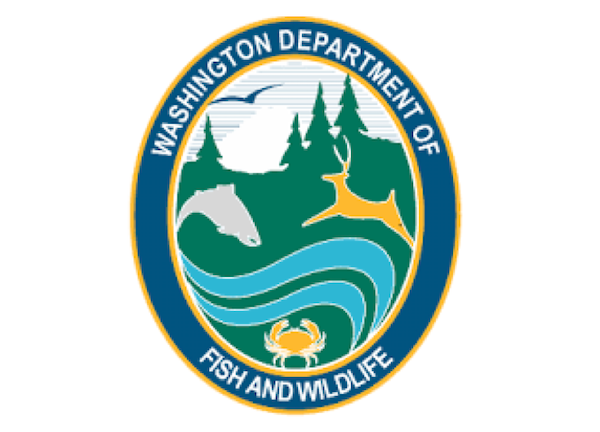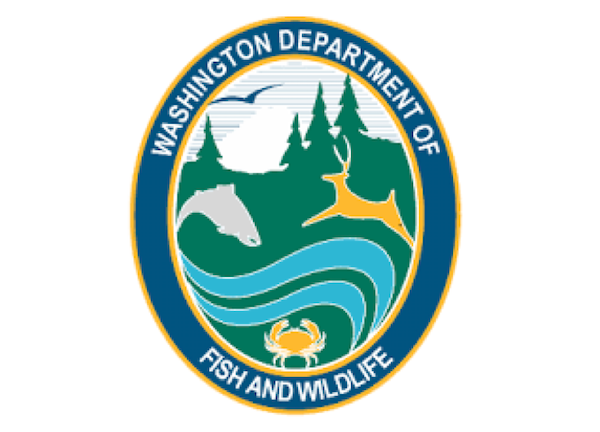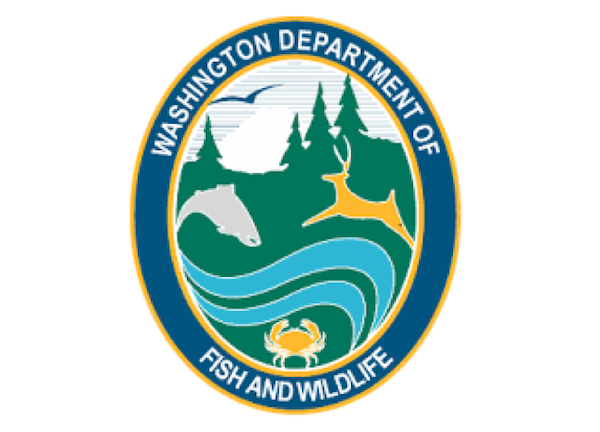Fish Report for 11-20-2021
Washington residents who hunt in Idaho or Manitoba asked not to import deer, elk, and moose due to detections of Chronic Wasting Disease

by WA Department of Fish & Wildlife Staff
11-20-2021
Website
SPOKANE – Cases of chronic wasting disease (CWD) confirmed in Idaho and Manitoba have wildlife managers at the Washington Department of Fish and Wildlife (WDFW) taking proactive measures to slow the potential spread of the disease to Washington State.
Two mule deer harvested in October near Lucile, in western Idaho, were confirmed to have CWD, a fatal illness of deer, elk, moose, and caribou. Another case in a mule deer in Manitoba was confirmed in October. Chronic wasting disease is caused by mutated proteins known as prions that can contaminate the environment and be transmitted between animals through feces, saliva, urine, and other bodily fluids. There is no treatment or vaccine for the disease.
To reduce the risk of CWD entering Washington state, WDFW is implementing an emergency rule adding Idaho and Manitoba to the list of states and provinces where CWD has been detected and are subject to carcass importation restrictions under WAC 220-413-030. Hunters who harvest a deer, elk, or moose from these areas may only bring the following into Washington:
- Meat that has been de-boned and is imported as boned-out meat.
- Skulls and antlers, antlers attached to the skull plate, or upper canine teeth (bugler, whistlers, ivories) from which all soft tissue has been removed.
- Hides or capes without heads attached.
- Finished taxidermy mounts.
In addition, hunters who are informed by another state or agency that an animal they harvested tested positive for CWD must notify WDFW within 24 hours by calling 360-902-2515 or emailing wildthing@dfw.wa.gov.
Hunters that may have already brought their harvest into Washington are urged to dispose of any bones or inedible parts that have not undergone taxidermy by double-bagging and placing in your household garbage or taking them to a licensed landfill.
This deer hunting season, staff and volunteers have been actively sampling road killed and hunter harvested white-tailed deer for the disease in northeast Washington. To date, all returned samples have tested negative for CWD. The CWD Management Plan calls for expanding testing efforts, dependent on funding, to southeast Washington in Asotin and Garfield counties and further east into Ferry and Okanogan counties next year. Following the detections in Idaho, WDFW wildlife managers are also reviewing the plan to see if any elements or actions included in it should be revised or accelerated to slow the spread of CWD into Washington.
While CWD detections have occurred in the United States for over 50 years, until this fall the closest to Washington it had been confirmed was Libby, MT. WFDW has been proactively preparing for possible detections of the disease for several years, and in the past year developed a draft Chronic Wasting Disease Management Plan to guide both monitoring for the disease and how to respond if it is found in our state.
No matter where you hunt, WDFW advises hunters to:
- Avoid harvesting any animal that appears sick or is behaving strangely.
- Wear disposable gloves while field dressing game.
- Thoroughly wash hands and equipment after processing carcasses.
For extra precautions against CWD:
- Avoid consuming parts where the CWD prion accumulates including: brain, spinal cord, eyes, spleen, pancreas, tonsils, and lymph nodes.
- Avoid cutting through bone, brain or spinal cord.
While hunting or pursuing other recreational activities, if you observe an animal showing signs consistent with CWD, please tell us about it using WDFW’s reporting tool.
The Washington Department of Fish and Wildlife works to preserve, protect and perpetuate fish, wildlife and ecosystems while providing sustainable fish and wildlife recreational and commercial opportunities.
More Reports
WA Department of Fish & Wildlife Reports
for Thursday, November 11th, 2021
Lewis River: Adult coho daily limit increased on the Lewis River
: Next round of razor clam digs get go-ahead on Washington coast
Washougal River: Adult coho daily limit increased on the Washougal River
Kalama River: Adult coho daily limit increased on the Kalama River
: Marine Area 10 (Seattle/Bremerton) reopens Nov. 22 for late-season crab fishing
WA Department of Fish & Wildlife Reports
for Thursday, November 4th, 2021
: Fish Black Friday for big rainbow trout
Sol Duc River: Wild Chinook must be released on the Quillayute, Sol Duc, Dickey, Bogachiel, and Calawah rivers

Website Hosting and Design provided by TECK.net